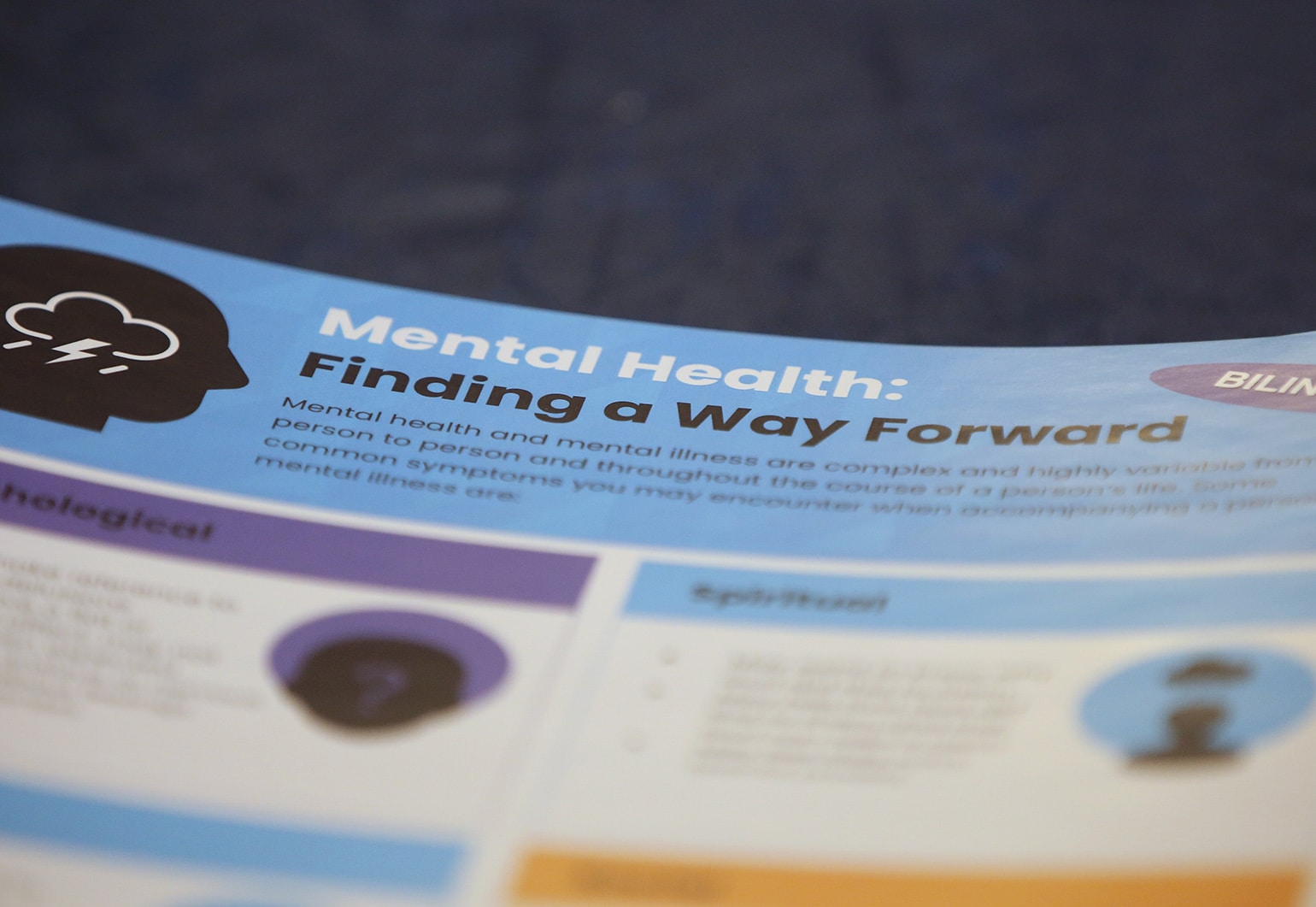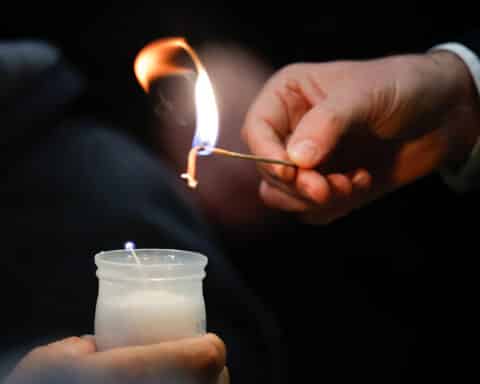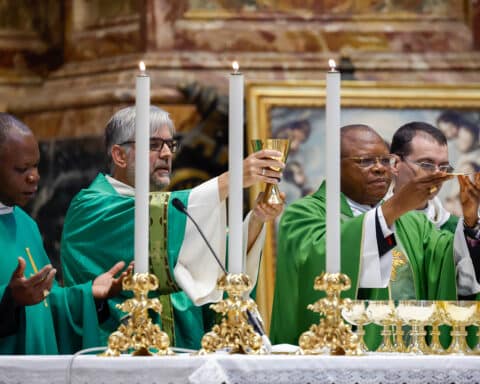(OSV News) — Catholic mental health experts and ministries are welcoming a new campaign by U.S. bishops to raise awareness around mental health amid a nationwide crisis.
“Conversations about mental health have been occurring in secular circles for many years, and the church has something of eternal value to contribute to the discussion,” Kenna Millea, a licensed marriage and family therapist who serves as clinical director and co-founder at the Martin Center for Integration in Bloomington, Minnesota, told OSV News.
On World Mental Health Day Oct. 10, the U.S. Conference of Catholic Bishops launched a National Catholic Mental Health Campaign and novena.
Led by Archbishop Borys A. Gudziak of the Ukrainian Catholic Archeparchy of Philadelphia and Bishop Robert E. Barron of Winona-Rochester, Minnesota — who respectively head the bishops’ Committee on Domestic Justice and Human Development and Committee on Laity, Marriage, Family Life and Youth — the campaign aims to raise awareness, remove the stigma of mental illness and mental health challenges, and advocate for those struggling.
Millea and other experts echoed many of the themes addressed by the bishops: That mental health affects everyone, particularly young people, and that the Church’s participation is needed.
Millea said secular conversations about mental health have been “good and helpful,” but “at times they have lacked the fullness of truth in understanding the human person, the origin and purpose of mental health and its disorders and challenges, as well as responses to mental health struggles that uphold the dignity of each person.”
Stigma of mental illness
Catholic mental health experts stressed the importance of removing the stigma surrounding mental health while emphasizing that those struggling with mental health are loved and valued by the Church.
“Our church needs to eliminate the stigma associated with mental illness so that our parish communities can be places of hope and healing when we and our loved ones face mental health challenges,” said Deacon Ed Shoener, president of the Association of Catholic Mental Health Ministers, or ACMHM.
“About 20% of us live with a mental health condition, and over our lifetime about 50% will experience some type of disorder,” he said. “If you don’t experience a mental health challenge yourself, you know and love someone who does.”
Deacon Shoener said that his organization — a lay association whose members serve as a healing presence in the lives of people with mental illness — is ready to help with the new initiative.
“Our association is prepared to support the bishops’ call to start mental health ministries by providing free training and other resources to help parishes and dioceses start mental health ministries,” he said.
In Mechanicsburg, Pennsylvania, Donna Nebistinsky leads the mental health ministry at St. Elizabeth Ann Seton Parish, where she serves as a pastoral associate. She expressed excitement over the Church drawing attention to mental health.
“We are after all created body, mind and spirit,” she said. “It’s so important to help people see that all three need to be given attention, and that the church is able to help with that.”
Nebistinsky began her parish ministry, which is affiliated with ACMHM and provides support for those experiencing mental illness as well as their family and friends, after noticing a need following the COVID-19 pandemic.
“So often as Catholics we tend to focus on church as the place we go for Mass, and seem to forget that church is us,” she said. “Serving like Jesus in all aspects of life is a call that we should strive to meet, and the parish community is exactly the place where this should happen.”
At the parish level, she also expressed concern over the stigma surrounding mental illness.
“Having church leaders acknowledge that we need to be ministering to those who suffer mental illness will help those of us at the parish level to better bring this ministry to our faith communities,” she said.
Finding community support in the Church
In the Archdiocese of Washington, also affiliated with ACMHM, Mary O’Meara, the executive director of the Office of Deaf and Disabilities Ministries, emphasized that mental health is intricately connected to spiritual well-being.
The archdiocese lists mental health resources for both parishes and individuals. In addition to ACMHM, the archdiocese works with organizations such as the National Catholic Partnership on Disability and Sanctuary Mental Health Ministries to support their parishes.
“By openly discussing mental health, the church can help reduce the stigma and shame associated with mental health issues,” O’Meara said. “This encourages individuals to seek help without fear of judgment, fostering a more supportive and understanding community.”
At the Martin Center for Integration, Millea said that mental health care provides an opportunity for evangelization and to grow closer to God.
“The church has a meaningful opportunity for evangelization by extending compassionate care to those struggling with their mental health,” she said. “Through spiritually grounded and scientifically sound mental health care, we all have the opportunity to meet Christ the Healer.”
She and others, including ACMHM’s Deacon Shoener, highlighted the bishops’ focus on struggling youth.
“It would be wonderful if, when a young person experiences a mental health challenge, the first place they would think of going to for support and accompaniment is their parish community,” he said. “It would be a way of drawing young people back to the church.”
The Church offers hope and love for all Catholics struggling with mental health, experts emphasized.
“You are not alone and you have never been abandoned,” Millea said she wants Catholics to know. “The Lord loves you perfectly and completely, and his church sees you in your need.”
“Bring your suffering to Christ in the Garden of Gethsemane, whose soul was ‘sorrowful even to death,'” she said, citing Matthew 26:38. “By drawing close to Jesus you will more fully become the person, and the holy saint, that God created you to be.”





